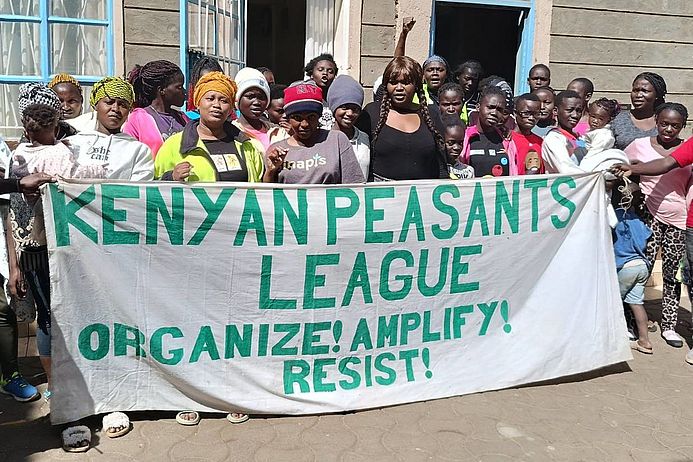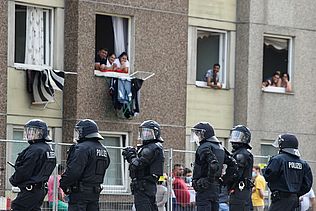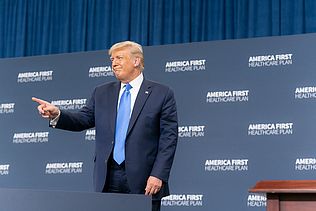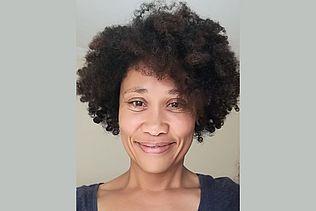medico: In less than ten days, Geneva Global Health Hub (G2H2) is going to launch the initiative "The Pushback on Women’s Rights Must Be Stopped". In the announcement you are talking about a full-scale assault aimed to undermine women's rights in societies, globally. What do you mean by this exactly?
Our initiative is a response to a subtle phenomenon that we see happening not just at the WHO. It is happening in several UN bodies. And this is a political backsliding enacted through the removal of words, the removal of concepts, the removal of language stating the conditions of respect and care for women's rights. Language that has been agreed in the past is now being removed literally from documents that were sealed by agreements of the past. And this is happening as a somewhat consistent political trend. That’s where the assault, indeed, against women's rights happens at the multilateral level. We were shocked by the interventions of some delegates we heard at the WHO’s Executive Board exactly one year ago.
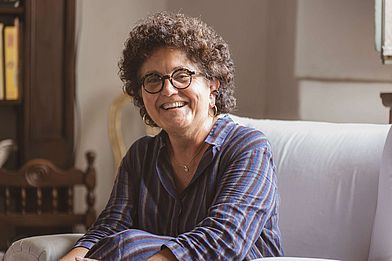
When the decision regarding the status as NGO in official relations with WHO of the US-based organization Center for Sexual and Reproductive Rights was held, this was a result of a campaign of US pro-life groups, hand in hand with regimes such as Russia and some conservative African countries.
…because sexual and reproductive rights are the first target of this landslide towards patriarchal revanchism. The body of women is the perfect battle ground where patriarchal values can be experimented and pursued. But as a group of women who witnessed this happening, we decided that we needed to react to this rather phenomenon silently creeping and pervading diplomatic interactions at the WHO. There is research on this backlash, but no one is really voicing out loud the roots of what we see and study, to shape action against it. And we decided to act.
I understand your initiative is targeting a very comprehensive development and not just the development inside WHO, right?
Definitely. This initiative starts from a group of women mostly affiliated to the Geneva Global Health Hub who are directly involved with the global health arena, but it doesn't stay there. We basically use sexual and reproductive rights as the symbolic ground which a new wave of right-wing and fascist political movements are using to relocate women in their traditional obsolete role. But this is not the end of the story. The same happens with violations of women's rights through austerity measures, or exclusion of their financial capacity in the way mainstream finance treats women and their right to credit. Women play a huge role in agriculture, but they cannot own the land. It has to do with containing and limiting women's agency in all possible ways. 2024 has been a flamboyant electoral year. But at the same time, the level of women's representation in parliaments, in representative bodies, has been the worst in the last 20 years. This is to say that even the long-standing and painful effort of women to be represented in institutions is actually backlashing. It is moving backwards. This is really the problem.
Efforts that have been carried out for ages by women, including of course with supportive men, are now being rapidly dismantled by a very cohesively structured, financially supported, right-wing political network that benefits from the connivence of all sorts of religious groups. They may fight wars with each other, but on this, they are all united.
What exactly do you have in mind to tackle these anti-feminist attacks at the UN level?
As health activists, what can we do when these things happen in the WHO rooms? What can we do when a delegate, usually it is now a white man delegate from some parts of the world - comes and says that women's health and sexual and reproductive rights are not human rights? Maybe we can start doing something in the room in a nonviolent manner, making some noise. We can start reacting in the room but not taking the floor. I don't want the one minute or 45 seconds that WHO gives me for my official statement. I don't want that. I want something more powerful, less codified. The UN system hides itself behind the reality that it is member states who want these policies. It is member states that want words like 'gender' to be canceled from documents. That’s why we also need to work at the national level.
The WHO constitution says very clearly that health as a fundamental right is without distinction. And at the same time, we have these contested topics around gender equality. This is highly problematic for WHO’s credibility. Might this itself be part of the right-wing`s strategy to undermine the legitimization of multilateralism?
The risk that we perceive is that a new consensus may quickly emerge across the spectrum of an increasingly right-wing US, an increasingly right-wing Europe, an increasingly right-wing Russia, an increasingly right-wing India, etc. This consensus may even converge on the idea that we could do without the UN. After all, the instances of unpunished actions against the UN have increased in 2024, making a compelling case for its existential weakness. I refer to the UN Secretary General banned as persona non grata in Israel or UN humanitarian staff consistently attacked in conflict-zones, and nothing happens. This struggle for women's rights is also a struggle for multilateralism, which is definitely perfectible, but the world would be much more of a wild jungle if that multilateral setting were not there. That is why, for us, these two are very connected things.
You will launch the initiative in Geneva, in the Graduate Institute. Don’t you fear that the scope is a very limited one, when it comes to the audience and who you can reach?
Of course, we start from the environment we work in, the Geneva bubble. We have no other choice. Yet, I invite you to look at the grammar of this event. In Geneva, one generally listens to researchers, to those that count numbers, give you projections and data. And this knowledge is very important, no doubt. This time, however, we try to bring the reality of women in their specific contexts to the fore. We invite Iranian women to speak about their struggle. We invite Navdanya International, an organization that supports women's struggle in agriculture in several parts of the world. We have a Sudanese pediatrician, who has not only been one of the main figures in the democratic struggle in Sudan to oust al-Bashir, but she's now, from London, one of the strongest advocates for democracy and the end of the war in Sudan. We try to feature those who do not only analyze the specific situation, but experience it right away.
This initiative only departs from a small and diverse group of women talking online after intercepting some diplomatic events in Geneva. But it cannot stop here, this is a process we need to design and define with others. For the moment, G2H2 is promoting this initiative with the Graduate Institute because G2H2 is a recognized entity in Geneva and it is actually the cradle where all this debate has been developed for the last year. But then we must think of the tools, the light but indispensable structures, and the funding we need if we want to set in place actions that can reach out to women, where women are. And through few that are currently constituting the group we hope to reach out to other people. You always start small.
We need to speak out various levels, both institutional and grassroots. The UN sphere is key, but we don't want to remain confined to the UN dimension of women’s institutional representation. We know that there are grassroot feminist groups in Iran today, in Afghanistan even, in Argentina, all over the world, who are the drivers of these struggles at the national level. Those are our priority.
Let's talk a bit practical. On the 30th, there will be the launch. What is the ideal way forward afterwards? What is going to happen according to your vision? What should be done afterwards?
We shall launch our website. We have a statement translated in almost 30 languages. Women in all the world will understand what we are talking about if we use their various languages. Abuse, discrimination, exploitation, violence: domestic violence, structural violence, economic violence. We have all experienced the meaning of these words in our different positions. We plan to create new tools, easy video and podcasts in different languages that we add to our campaigning website. We want to reach out and pick up stories involving the women that have supported our statement to get them further engaged. We shall continue our work at the UN level, with advocacy work in Geneva where many UN entities are. We shall have to expand our outreach capacity and organize ourselves accordingly.
It's going to be a formidable challenge, but it's a great aspiration for this gloomy year of 2025. We need a women's response to Trump’s Project 2025. This is the beginning of a pathway that must be defined collectively by women and other communities that feel threatened themselves.
The interview was conducted by Felix Litschauer and Andreas Wulf

